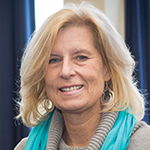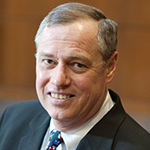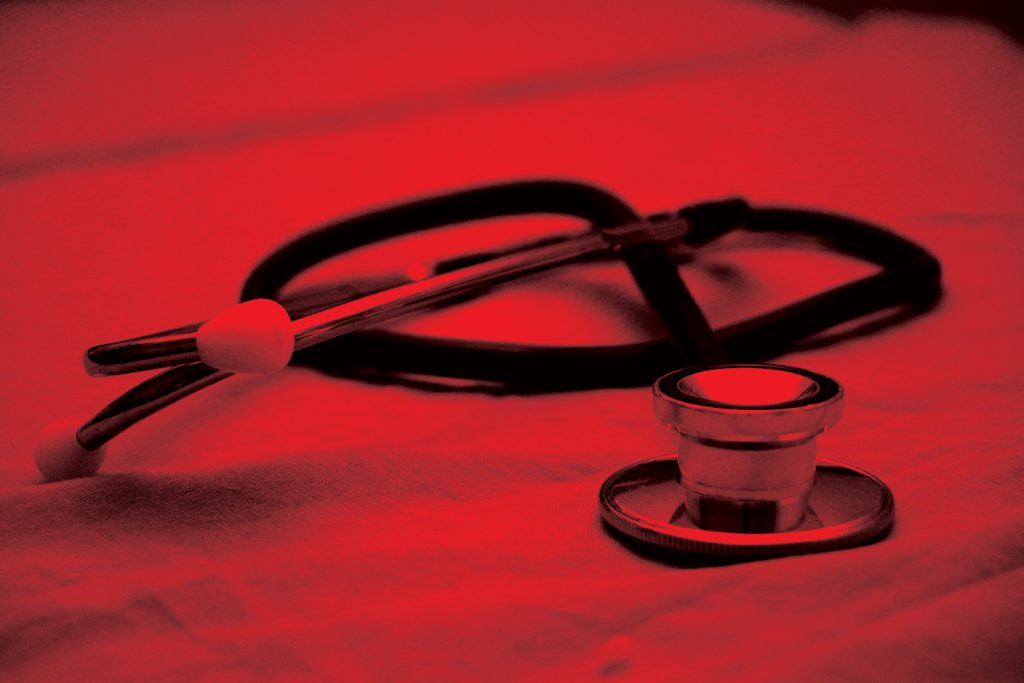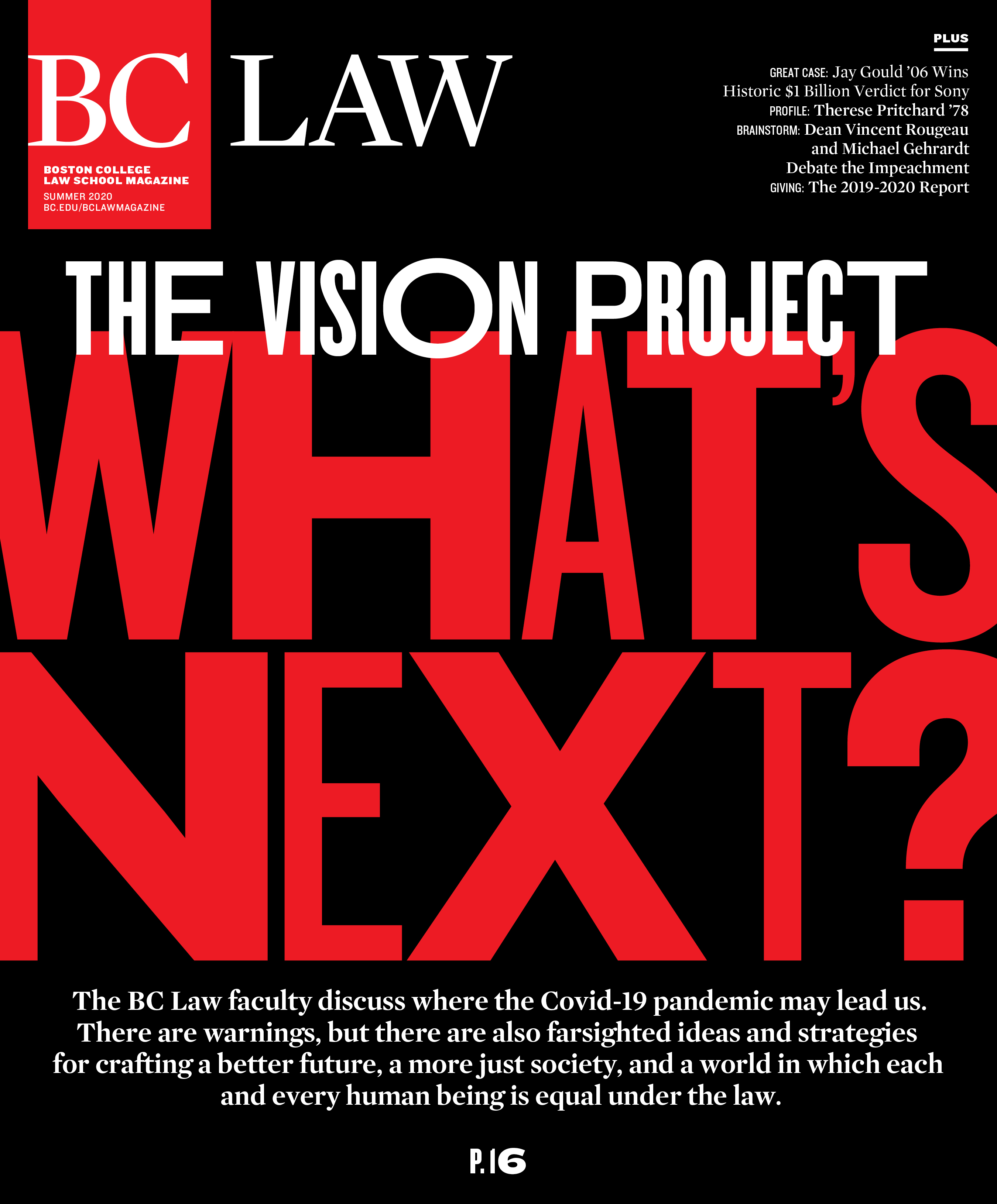As three of BC Law’s experts on health care law, public health, and global health reflect on the Covid-19 pandemic, they share a somber outlook for the future.

Calling the US response “a fiasco of grand proportions,” Professor Mary Ann Chirba ’81, who teaches public health law and policy courses at the Law School and (with David Wirth) at BC’s Schiller Institute for Integrated Science and Society, pilloried the current administration’s “total disrespect for expertise, science and data,” suppression of facts, and promulgation of harmful information for undermining good faith efforts to implement a rational response.
The US has no shortage of expertise in relevant fields, from virology to supply chain management to disaster preparedness, says Chirba, but “the experts and the scientists need to be let out of the bunker and allowed to do their job.” The present overriding need, she says, is for national leadership, of whatever political stripe, that respects science and data.

“We can’t ignore the confluence of the George Floyd murder, the protests, and Covid-19,” says Professor Alice Noble, a colleague and co-author with Chirba of the two-volume treatise Health Care Reform: Law and Practice–A Comprehensive Guide to the Affordable Care Act and its Implementing Regulations. “Along with outrage over police brutality and systemic racism in policing,” she says, “there’s also outrage over the disproportionate impact of the pandemic on communities of color.” Racial and economic disparities in health outcomes and access to health care are deep-rooted and long-standing, a reality often obscured by “the complexity of our patchwork health care system,” says Noble.
If she has a glimmer of hope in the middle of this crisis, it is that the intense public focus not only on Covid-19, but also on the racism baked into US institutions from the criminal justice system to health care, will galvanize action, as people are compelled to confront a fundamental lesson of public health: that “the health of all is dependent on the health of each.”

Professor David Wirth, who has a master’s in chemistry and is an expert in international environmental law and multilateral organizations, sees the same lesson playing out on a global scale. The pandemic, like climate change, is “a tragedy of the global commons,” he says, and as such demands collective action among nations. The US has historically been ambivalent about multilateral cooperation, he noted, though President Trump’s decision to terminate the US relationship with the World Health Organization (WHO) in the throes of a pandemic is unprecedented.
“With these global problems,” says Wirth, “the chain is only as strong as the weakest link. If one large state continues to pollute, if one large state continues to allow the virus to propagate without intervention, then the entire planet pays the price.”
Like Chirba, Wirth sees “a systematic disparagement of scientific and technical expertise,” in tandem with a rise in populism around the globe. “We need to look at the role of scientific, quantitative expertise in domestic and international institutions, and set up guardrails to ensure that debate occurs within areas where there’s legitimate room for disagreement,” he says. If democracies are to overcome these existential threats, “the exercise of democratic prerogatives needs to be based on scientific principles,” he says, “and they’re just not negotiable. Mother Nature doesn’t negotiate.”
To read other pieces in this issue’s The Vision Project, click here.



